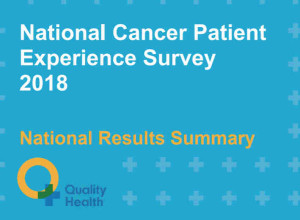How do head and neck patients fare in comparison with others?
Head and neck cancer is considered a “rare” cancer. Because the patient numbers are low compared to say breast or prostate cancer it can be difficult to gather meaningful information because sample sizes in surveys are too low.
The National Cancer Patient Experience Survey has been running for some years and the latest included returns from almost 2000 head and neck patients. Even so, results for our patients from individual trusts are problematic due to the small sample size for each and little information is available. Statistically significant results are only presented for the whole country.
Care is needed in comparing the experiences of patients having different cancer types. Differences in the care pathway, including preferred treatment modalities, will lead to differences in the response to particular questions in the survey. However some interesting differences are evident in the results. Looking back at previous surveys as well, the same differences have been seen in previous years.
When asked about the time between them noticing something suspicious to consulting a GP, 8% of head and neck patients reported a delay greater than 6 months. 3% of breast cancer patients gave the same answer.
A similar divide was seen after the visit to the GP. For 18% of head and neck patients it took 3 or more GP visits to get a referral to a hospital but just 3% of breast cancer patients needed this many.
When asked if they were given written information about their cancer, in a form that was easy to understand, 50% of head and neck patients responded positively. The corresponding figures for prostate and breast cancer were 74% and 70%.
These differences do not necessarily reflect failings in treatment and care; they will also result from the varying challenges of dealing with cancer at different tumour sites.
For patient support and advocacy groups, the results of the survey are valuable in assessing priorities and from the examples above raising awareness about head and neck cancer stands out.
The NCPES provides valuable information and would reward deeper analysis than presented here. I do hope the NHS will continue to fund this work and it does not go the same way as the head and neck audit (DAHNO) and vanish.
